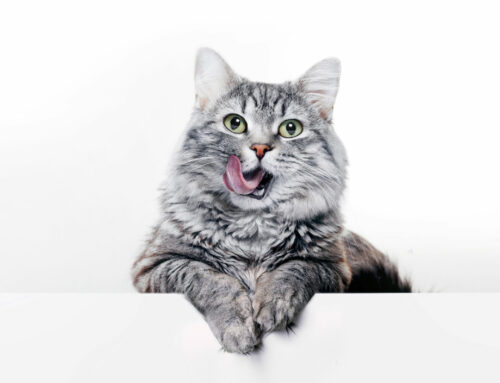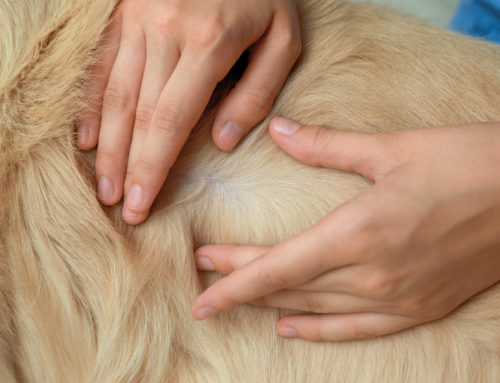Veterinary nursing: So much more than holding pets for vets
Do you really know what a veterinary nurse does? Although the veterinary nursing profession is working hard to educate the pet owning public about what the job entails, there is much work to be done still. Vet nurses are often asked when they’ll be a qualified vet, a question which can be frustrating but one that is born out of a lack of knowledge about veterinary nursing as a profession in its own right. Because veterinary nursing is just that, a profession of well qualified, highly skilled individuals, whose role in veterinary practice is vital and very different to that of a veterinary surgeon. Here at USVC all our nurses are specifically trained and qualified by either university degree or vocational qualifications recognised by the Royal College of Veterinary Surgeons, UK.
There is a register of qualified veterinary nurses held by the Royal College in the UK; to remain on it, our vet nurses must complete a specified number of learning hours each year, to stay current with the ever changing and progressing veterinary industry. So, for a flavour of how the vet nursing role impacts the experience of pet and owner in veterinary practice, much of which you might find surprising, read on.
The inpatient nurse
Not to be confused with ‘the impatient nurse’. Patience is a virtue that is vital to any veterinary nurse, tending to a full patient ward when for example, one member of the ward is incessantly barking. Or when one patient insists on twiddling around in circles, taking their drip line with them, thus blocking the line to their much-needed fluid therapy. In fact, the vet nurse knows that the noisy neighbour, barking its head off is doing so only because they’re worried or confused as to why they’re out of their home environment, feeling poorly in unfamiliar surroundings. And the ‘circling Susan’ may only be trying to get comfortable when perhaps tummy ache is preventing them from doing so. So rather than getting frustrated, perhaps ‘circling Susan’ would like some more bedding and perhaps noisy neighbour would appreciate some caring attention to try to soothe them. This will be the action taken by caring vet nurses rather than feeling irritated.
But it’s not only soothing worried patients, entertaining the otherwise bored puppy with the fractured limb, and spending hours trying to tempt an anorexic cat to eat by warming twenty different foods to the optimum temperature. That side of the role comes naturally to many vet nurses, and there is a whole side of inpatient care requiring much training, knowledge and practical skill that is learned at college, university as well as in the practice setting.
Medicating patients via a whole host of different routes, placing catheters into the vein, taking blood samples, maintaining urinary catheters, chest drains, and feeding tubes as well as calculating just the right amount to be fed to a patient depending on their individual needs, calculating drip and fluid rates and so very much more. Vet nurses watch inpatients very closely, recording observations, carrying out diagnostics such as blood tests and blood pressure measurements, knowing when to inform the veterinary surgeon about a change in the condition of a patient.
The theatre nurse
Oh what a varied role the theatre nurse has to play! Assessing and (under the direction of the vet) premedicating patients prior to surgery, setting up and ensuring all the necessary equipment is to hand, and making safety checks such as ensuring a plentiful supply of oxygen for the duration of the operation. And then the operation gets underway. The vet nurse slips into the role of anaesthetist, liaising with and acting under the direction of the vet, to carefully balance the anaesthetic to depths that are suitable for surgery but safe for the patient as well. Applying monitoring equipment and interpreting measurements so that blood oxygen and carbon dioxide levels as well as body temperature and blood pressure can help determine the depth of anaesthesia required. This equipment can also indicate anything untoward that might compromise patient safety, something which a vet nurse will detect and inform the veterinary surgeon of so that disaster may be avoided. The vet nurse will take steps to keep the patient warm and comfortable post-operatively and arrange ongoing care requirements thereafter.
Did you know that vet nurses can perform some dental procedures themselves? We have dental radiography which the nurses all perform, and they also scale and polish pets’ teeth if they’re in for a dental, plus assessing their mouths and gums for signs of disease. If that wasn’t enough, they’re also really involved in training pet owners on dental hygiene!
Diagnostic procedures
Ever wonder how veterinary patients often get same day blood or urine test results when their human counterparts might have to wait a number of days for theirs at the doctors? It’s because not only do veterinary practices have laboratory equipment on site, but also vet nurses and lab technicians to run tests.
Nurses also get involved in taking radiographs, positioning the patient and applying the correct settings to the X-ray machine, aiming to create an images of the highest diagnostic quality for the best possible chance of diagnosis by the vet.
The educator
From helping you to slim your pet down in a safe and effective manner, to advising you on giving your puppy or kitten the best start in life and teaching you how to inject your diabetic pet with insulin, the consulting nurse has a great deal of knowledge that they are keen and willing to share with you. They can give certain vaccinations and carry out health checks to pick up on health conditions early, referring the patient to a vet for further assessment and treatment.
Our nurses are also expert manicurists – they do an incredible job trimming pets’ nails…!
The all-rounder
Some vet nurses choose an area of interest within the profession to focus on, however, you might be surprised to know that many carry out all of the duties above. It is easy to see that veterinary nurses are highly skilled and knowledgeable individuals who significantly impact the experience of patients and their owners in veterinary practice and who are a force for excellent patient and client care.



